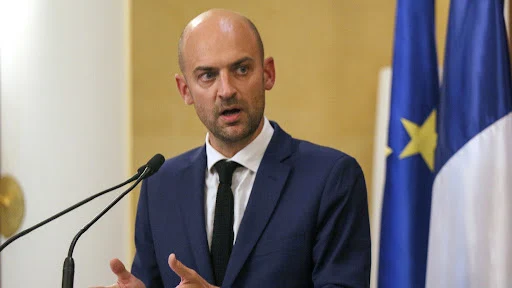In a significant show of support for Ukraine amidst its ongoing war with Russia, France has reaffirmed its commitment to President Volodymyr Zelensky’s "victory plan," which aims to secure a strategic and military triumph over Russian forces. During a visit to Kiev, French Foreign Minister Jean-Noel Barrot pledged France's continued assistance, including advanced military support, while signaling openness to Ukraine's eventual membership in NATO.
Barrot, speaking at a joint press conference with Ukrainian officials, emphasized that a Russian victory would pose a grave threat to the international order, destabilizing global peace and encouraging aggressive expansionist policies. “We cannot allow a scenario where international law is trampled upon and borders are redrawn by force,” he stated, underscoring France's stance that Ukraine’s sovereignty and territorial integrity must be upheld. The French diplomat's visit comes at a time when the war in Ukraine has entered a critical phase, with both sides preparing for prolonged military engagements as winter approaches.
Despite NATO’s standing policy that Ukraine cannot join the alliance until the current conflict is resolved, France has expressed its readiness to work with allies to create a pathway for Ukraine’s eventual membership. Barrot indicated that although challenges remain, there is a growing consensus in Europe to support Ukraine’s NATO ambitions as a long-term strategy to ensure regional stability and deter future aggression from Russia.
As part of France’s support, Barrot announced that Kiev would receive a fleet of Mirage 2000 fighter jets in early 2025. These aircraft, which have been a staple of the French Air Force, are expected to bolster Ukraine’s air defense capabilities amid ongoing Russian missile and drone strikes. The Mirage 2000 planes are capable of carrying a range of munitions and could play a crucial role in enhancing Ukraine's ability to secure its airspace.
However, Moscow dismissed Zelensky’s "victory plan" as incoherent and disconnected from reality. Kremlin spokespersons derided the plan’s emphasis on reclaiming all occupied territories, including Crimea, as unrealistic given the current military dynamics. Russia’s stance remains firm on maintaining control over regions it annexed and continues to support breakaway territories in eastern Ukraine. The Kremlin also criticized NATO’s open door policy towards Ukraine, warning that it could lead to further escalation in the region.
Zelensky’s "victory plan" involves not only reclaiming lost territories but also ensuring reparations for war damages, holding Russian leaders accountable for alleged war crimes, and securing firm security guarantees from Western allies. The Ukrainian president has repeatedly called for international backing to push through these objectives, presenting them as essential steps to restore peace and stability.
The international community remains divided on the feasibility of Ukraine's membership in NATO amid an ongoing war. While some members advocate for fast-tracking Kiev’s membership as a show of solidarity, others caution against inflaming tensions further with Russia, which has framed NATO’s eastward expansion as a primary reason for its invasion.
France’s vocal support for Ukraine could signal a shift in European policy, as key nations reassess the continent's security landscape in light of Russia’s aggression. Barrot's remarks indicate that while immediate NATO membership may be off the table, the West is committed to strengthening Ukraine's defenses and providing the necessary political backing to support its fight for sovereignty.
For Ukraine, France’s pledge of military aid and political support is a significant boost in a war that has tested its resilience and strained its resources. As the conflict drags on, Kiev hopes that sustained Western assistance will tip the balance in its favor, helping to secure a "victory" not just on the battlefield but in broader geopolitical terms.
Tags
International

